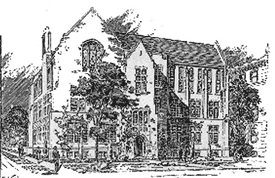No Way, No How, No Sharia
 Representative Tom Tancredo has introduced something he calls the “Jihad Prevention Act.” The bill would exclude from admission into the United States of “[a]ny alien who fails to attest . . . that the alien will not advocate installing a Sharia law system in the United States . . . .” The bill raises a number of questions but the one that calls out to me is the question of the government’s interest in the religious beliefs of its citizens. Constitutional doctrine says that the state must make no religious decisions and treat all equally but, as I argue in a forthcoming paper (and I was hardly the first to notice), the government engages in all sorts of conduct that is calculated to shape the religious beliefs of its citizens, and there is probably no way to avoid that. Certain religious systems may well be incompatible with liberal democracy. Christian Dominionism may be one of them. Perhaps a form of Islam insisting upon Sharia law is another.
Representative Tom Tancredo has introduced something he calls the “Jihad Prevention Act.” The bill would exclude from admission into the United States of “[a]ny alien who fails to attest . . . that the alien will not advocate installing a Sharia law system in the United States . . . .” The bill raises a number of questions but the one that calls out to me is the question of the government’s interest in the religious beliefs of its citizens. Constitutional doctrine says that the state must make no religious decisions and treat all equally but, as I argue in a forthcoming paper (and I was hardly the first to notice), the government engages in all sorts of conduct that is calculated to shape the religious beliefs of its citizens, and there is probably no way to avoid that. Certain religious systems may well be incompatible with liberal democracy. Christian Dominionism may be one of them. Perhaps a form of Islam insisting upon Sharia law is another.
Does the government have an interest in discouraging the formation and spread of such beliefs? If so, what can it do to further that interest?

